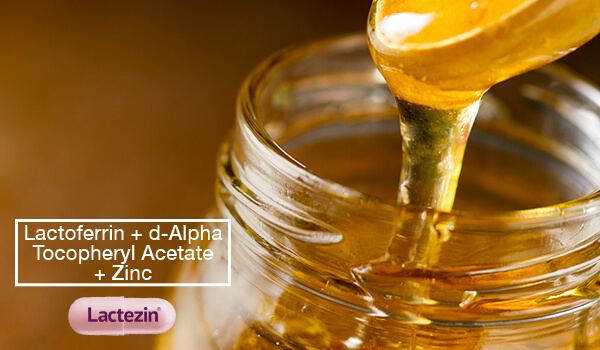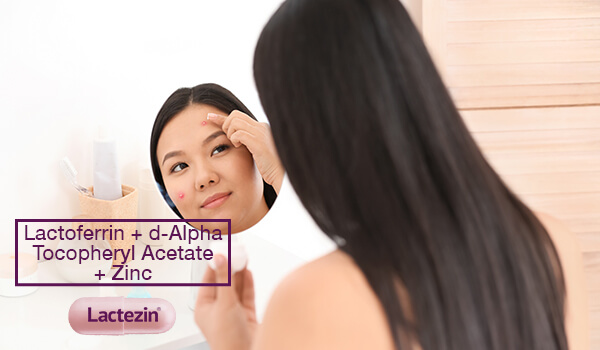Everyday Pimple Treatments that are Better than Popping Them

Especially when serious, acne will sometimes require professional skin care procedures and treatments. But for mild, small and infrequent acne breakouts, you might be surprised to learn that you have several acne remedies at home!
Resist popping that pimple! Browse through this list of everyday items that you can use for doing pimple treatments at home.
What Causes Acne
But before we get to doing pimple treatment at home, it helps to understand how acne — pimples, blackheads and whiteheads among others occur. Here’s a brief refresher on the common culprits.
- Excess Sebum
Sebum is oil produced by the skin’s sebaceous glands. It functions to coat, moisturize and protect the skin. When there is excess sebum, it tends to pool or clog the pores with trapped dirt or bacteria, resulting in acne breakouts.
- Hormonal Imbalance
The production and behavior of hormones also influences your skin’s appearance. Especially during puberty or stressful situations, hormones such as androgens and cortisol trigger more sebum production which then leads to acne.
- Diet
Diet plays a role in keeping the skin healthy and clear of impurities. Dairy and high-glycemic food such as pasta, milk, bread, chips and deep-fried food are found to cause or worsen acne. Carbs-rich food or high-glycemic foods makes blood sugar rise which triggers the production and release of insulin. Too much insulin causes the sebaceous glands to produce more sebum, increasing the risk of breakouts.
- Genetics
Unfortunately, acne problems can run in the family. If you’re parents or the elderly in the family consistently have problems with acne, there’s a good chance that your acne worries are due to genetics.
Pantry Items for a Pimple Treatment at Home
The good news is that for mild acne caused by naturally oily skin and unhealthy lifestyle choices, you may not need to leave home. Set yourself a simple pimple treatment at home with these simple solutions.
- Aspirin
The main in aspirin is salicylic acid which is a powerful acne-fighting ingredient. Be careful not to use it as a mask as it can be drying, and may even cause irritation with those who have sensitive skin. Use it like how you would a spot treatment and apply only on pimples.
How to use: create a paste with crushed aspirin and water. Apply on pimples.
- Aloe Vera
Got an aloe vera plant you can cut a leaf off of? Aloe Vera has long been a go-to for a range of skin benefits. It has antifungal properties that fight infections, encourage healing and soothe inflammation. It also has astringent properties that keep sebum production in control.
How to use: use a spoon to scoop or scrape fresh aloe vera pulp from a leaf. Apply to your face twice a day.
- Apple Cider Vinegar
With organic acids such as malic, succinic and lactic acids, apple cider vinegar may help exfoliate skin, banish bacteria, dry out acne and aid in minimizing acne scars. In case you don’t recognize it, apple cider vinegar is a popular ingredient in handcrafted toners.
How to use: for your very own gentle apple cider vinegar toner, mix three parts of water with one part of the apple cider vinegar. Make sure to not overuse the product or overdo this pimple treatment at home, as it may dry out your skin.
- Green Tea
The popular alternative to coffee is packed with antioxidants, flavonoids and tannins. Each sip of green tea naturally controls acne-inducing blood sugar and insulin levels. Its antioxidant compounds, especially EGCG (epigallocatechin-3-gallate), are known to control oil, soothe inflammation and irritations.
How to use: there’s a variety of ways you can use green tea. First, make a pot. You can make a mask from the used and cooled teabag. You can use the leftover tea with a spritzer, or a cotton ball for application.
- Honey
Honey heals. Some people use it as a cough syrup, and some would use it for burns and wound infections. The reason behind honey’s healing benefit is that it has antibacterial properties, and studies have shown that this benefit also helps with improving acne.
How to use: get a teaspoon of honey and apply it on affected areas. You may also choose to make a mask by mixing ½ cup of honey with 1 cup of plain oatmeal. Leave this mask on for 30 minutes before rinsing with warm water.
- Lemons
Acidic foods like citrus fruits are astringent and may help dry out acne. Lemons are especially known for lightening skin, fighting bacteria and reducing the appearance of acne and acne scars.
How to use: with a cotton ball, dab a small amount of lemon juice on acne and affected areas.
- Oatmeal
Oatmeal is not just a nutritious breakfast option, it’s one of the best home remedies for acne. It has anti-inflammatory properties that relieve irritation caused by rashes, burns, itch and eczema.
How to use: form a paste with 2 tsp. of oatmeal, 1 tsp. of baking soda and water. Smooth the paste all over your face and leave on for a few minutes before thoroughly rinsing afterward.
There are many more home and kitchen items that may be useful in keeping acne at bay. But remember to pace yourself with experimenting. Stick with the safer, tried-and-tested solutions first. To help you in warding off pimples, Lactezin packs the anti-acne benefits of lactoferrin, vitamin E and zinc. With continued proper use, Lactezin helps lessen pimples in as early as 2 weeks!
Get your acne questions answered with expert pimple care tips and advice, only from Lactezin.
SOURCES:
https://www.healthline.com/nutrition/13-acne-remedies
https://www.everydayhealth.com/skin-and-beauty/home-remedies-for-acne.aspx
https://www.nykaa.com/beauty-blog/how-to-get-rid-of-acne-with-home-remedies-and-clinical-treatments/
https://www.thehealthy.com/skin-health/acne/home-remedies-for-acne/
